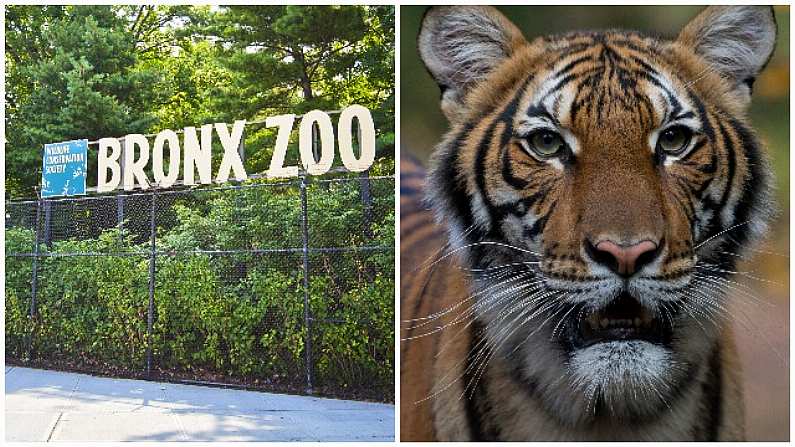A four-year-old Malayan tiger at New York's Bronx Zoo has tested positive for Covid-19.
In a statement released on Sunday, the zoo confirmed the positive test along with saying that Nadia's sister Azul, two Amur tigers and three African lions have also developed symptoms.
The animals are believed to have been infected by an employee who was not showing symptoms of the disease. The zoo has been closed since March 16th.
"We tested the cat out of an abundance of caution and will ensure any knowledge we gain about COVID-19 will contribute to the world’s continuing understanding of this novel coronavirus," the Zoo said in a statement.
"Though they have experienced some decrease in appetite, the cats at the Bronx Zoo are otherwise doing well under veterinary care and are bright, alert, and interactive with their keepers.
"It is not known how this disease will develop in big cats since different species can react differently to novel infections, but we will continue to monitor them closely and anticipate full recoveries.
"The four affected tigers live in the zoo’s Tiger Mountain exhibit. One male Amur tiger that also lives at Tiger Mountain has not exhibited any clinical signs, and a Malayan tiger and two Amur tigers at the zoo’s Wild Asia exhibit have also not exhibited any clinical signs.
"None of the zoo’s snow leopards, cheetahs, clouded leopard, Amur leopard, puma or serval are showing any signs of illness.
"Our cats were infected by a person caring for them who was asymptomatically infected with the virus or before that person developed symptoms. Appropriate preventive measures are now in place for all staff who are caring for them, and the other cats in our four WCS zoos, to prevent further exposure of any other of our zoo cats."
In a further statement released via social media, the zoo's chief veterinarian Dr Paul Calle said that Nadia's test was performed in a veterinary laboratory and that it is not the same test which is used for humans.
"You cannot send human samples to the veterinary laboratory, and you cannot send animal tests to the human laboratories, so there is no competition for testing between these very different situations," he said.
Picture credit: Stuart Monk / Shutterstock.com and © WCS













